Agri-tech and Engineering
Agri-tech and engineering are at the forefront of transforming Lincolnshire’s agricultural sector, driving efficiency, sustainability, and innovation across farms, food production facilities, and manufacturing plants. This dynamic area supports every stage of the supply chain, incorporating cutting-edge robotics, precision farming, automation, research, and advanced machinery.
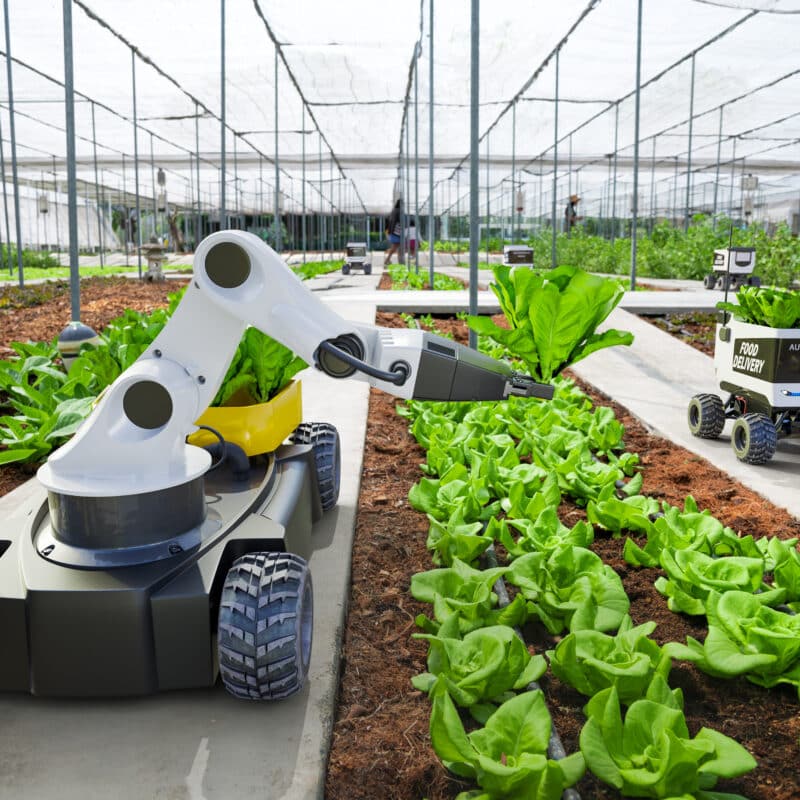
Encompassing a wide range of industries, agri-tech and engineering includes developing software for farm management, designing production equipment, and advancing scientific research to improve yields and reduce environmental impact. Whether it’s creating automated systems for planting and harvesting, enhancing machinery efficiency, or pioneering innovative farming techniques, these roles are integral to the future of agriculture.
This sector offers exciting opportunities for individuals passionate about technology, engineering, and problem-solving. From improving productivity to supporting sustainable practices, agri-tech and engineering ensure that Lincolnshire remains a leader in agricultural innovation.
Business types within this sector include:
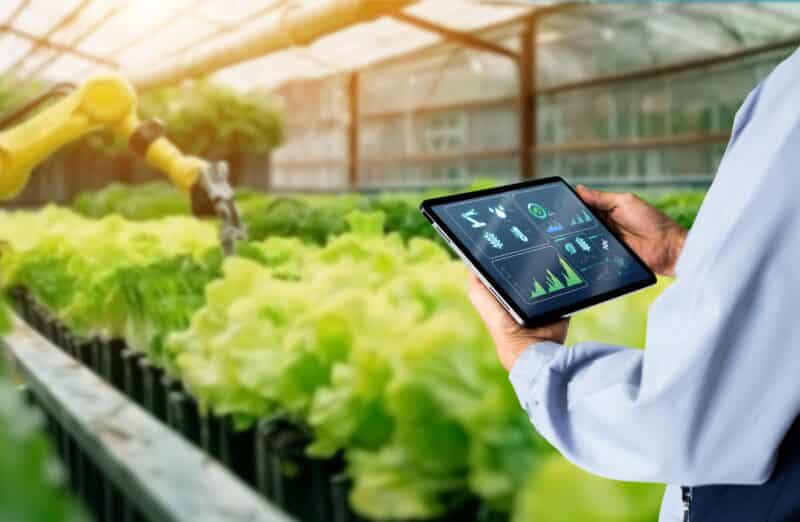
Robotics and automation
Robotics and automation are revolutionising Lincolnshire’s agricultural sector, driving efficiency and innovation across farms, processing plants, and manufacturing facilities. These technologies range from small-scale automated systems designed for specific tasks to large-scale robotic solutions managing complex agricultural processes.
Specialist robotics and automation systems enable precision in planting, harvesting, and monitoring crops, ensuring optimal yields while reducing labour demands. Automated systems in processing and manufacturing streamline operations, improve quality control, and minimise waste.
While larger organisations may have dedicated teams for robotics integration and maintenance, smaller businesses often adopt versatile systems that require employees to manage multiple tasks. Regardless of scale, robotics and automation are critical to sustaining Lincolnshire’s reputation as a leader in agricultural innovation and ensuring the sector’s long-term success.
Working in robotics and automation is perfect for someone who enjoys problem-solving, thrives on innovation, and takes pride in creating solutions that transform agriculture. Whether you’re designing cutting-edge robotic systems, programming automation software, or maintaining advanced machinery, each role in this sector contributes to improving efficiency, precision, and sustainability in farming and food production.
For those who enjoy working with technology, exploring new ideas, or being part of a forward-thinking team, robotics and automation offer a wide variety of rewarding career paths. No two days are the same, and every project plays a vital role in driving Lincolnshire’s agricultural industry into the future.
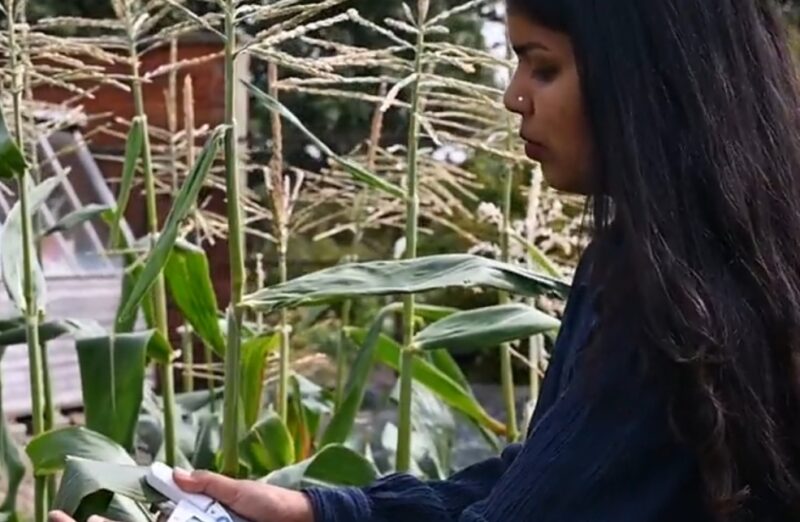
Precision farming technologies and agricultural software solutions
Precision Farming and Agricultural Software Solutions are transforming Lincolnshire’s agricultural sector, empowering farmers to optimise yields, improve efficiency, and enhance sustainability through innovative tools and technology. These solutions range from GPS-guided machinery and soil sensors to advanced software platforms that monitor, analyse, and manage farming operations with precision and accuracy.
By integrating data-driven insights with cutting-edge equipment, these technologies ensure that resources like water, fertilisers, and pesticides are used effectively, reducing waste while maximising productivity. Agricultural software further streamlines processes, enabling real-time decision-making, tracking of crop health, and management of logistics and supply chains.
Larger farms may employ specialised teams to manage these systems, while smaller operations often integrate these responsibilities into existing roles. Regardless of scale, precision farming and agricultural software solutions are vital to Lincolnshire’s success, helping the region maintain its leadership in sustainable and efficient agricultural practices.
Working with precision farming technologies and agricultural software solutions suits those who are passionate about innovation, problem-solving, and enhancing agricultural efficiency. These roles require technical expertise, analytical thinking, and the ability to manage tasks such as data analysis, operating precision equipment, and utilising software platforms to optimise farm operations and decision-making.
It’s perfect for individuals who thrive on technology, enjoy collaborating with farmers and agronomists, and take pride in delivering sustainable, data-driven solutions. Many businesses in Lincolnshire specialising in precision farming and software development are pioneering and adaptable, offering a unique opportunity to contribute to the region’s agricultural success by improving productivity, reducing waste, and supporting environmentally friendly practices.

Research and development
Research and Development is vital to the success of Lincolnshire’s agricultural sector, driving innovation and advancements that support farmers in improving productivity and sustainability. R&D efforts range from small, specialised teams exploring niche solutions to large-scale operations conducting comprehensive studies that influence practices across the UK.
Larger organisations often have dedicated teams working on new technologies, crop improvement, and sustainable methods, while smaller initiatives may focus on tailored, farm-specific innovations. Roles in research and development suit individuals who enjoy problem-solving, analysing data, and applying scientific knowledge to create practical solutions.
From developing cutting-edge technologies and enhancing crop resilience to exploring sustainable practices, research and development offers rewarding opportunities to shape the future of agriculture while ensuring efficiency and environmental stewardship.
Working in research and development is perfect for individuals passionate about advancing agriculture and creating innovative solutions to enhance productivity and sustainability.
Whether you’re conducting experiments, developing new technologies, or analysing data to improve farming practices, these roles suit those who thrive on problem-solving, collaboration, and applying scientific knowledge to achieve meaningful results in the agricultural sector.
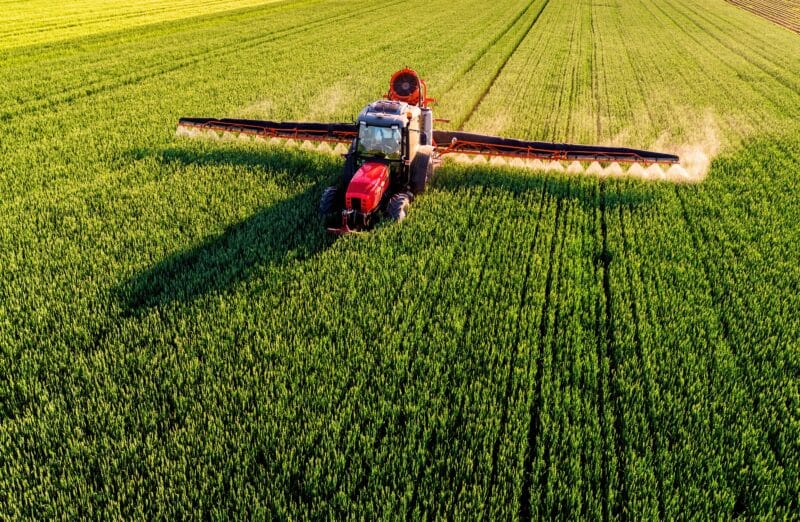
Farm and production machinery and equipment
Farm and production machinery and equipment are essential to Lincolnshire’s agricultural sector, supporting farmers in cultivating crops, raising livestock, and processing agricultural products. These operations range from small, specialised machinery providers to large-scale manufacturers and service providers supplying advanced equipment to regional and national markets.
Larger operations often have dedicated teams handling design, manufacturing, maintenance, and technical support, ensuring machines meet the highest efficiency and safety standards. Smaller businesses may require team members to take on a variety of roles, fostering adaptability and collaboration across departments.
From designing innovative machinery to maintaining and repairing essential equipment, roles in farm and production machinery offer rewarding career opportunities for individuals who enjoy hands-on work, thrive in technical environments, and take pride in supporting the efficiency and sustainability of the agricultural industry.
Working in farm and production machinery and equipment businesses is ideal for individuals who are passionate about agriculture, enjoy technical roles, and thrive in dynamic, hands-on environments. Whether you’re designing innovative machinery, maintaining equipment, or providing technical support to farmers, these roles are both engaging and rewarding.
These positions suit individuals who are detail-oriented, committed to high standards, and dedicated to enhancing the efficiency and sustainability of agricultural operations. It’s a great fit for those who excel at problem-solving, teamwork, and ensuring that essential machinery and equipment operate at peak performance in this vital industry.
Check out the different roles below:
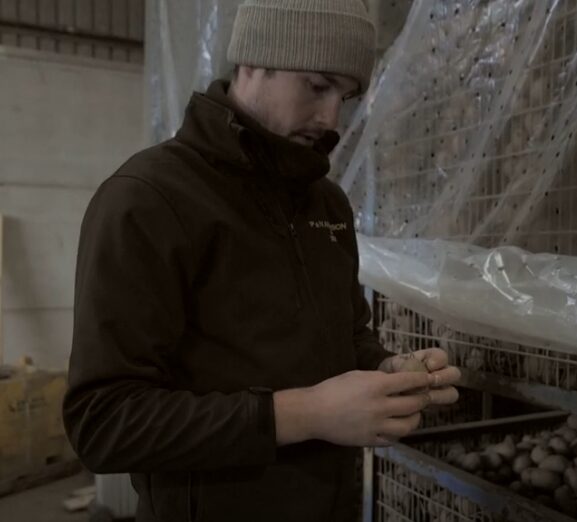
Management and general operations
Management and leadership teams are vital to Lincolnshire’s R&D, robotics, precision farming, agri-software, and machinery sectors. Each focuses on strategic leadership and operational excellence. R&D leaders drive innovation and sustainability. Robotics managers guide tech teams to develop automation solutions. Precision farming and software leaders oversee product development, support, and data use. Machinery sector managers handle design, production, and service—ensuring equipment meets modern agricultural needs. Each role presents distinct opportunities and challenges across the agri-tech landscape
Key roles: General Mmanager, R&D manager, product development lead, automation systems manager, precision agriculture specialist, machinery operations manager, business owner/proprietor.
Skills & attributes: Leadership, strategic thinking, technical expertise, innovation management, financial acumen, and excellent communication.
These roles suit individuals who excel at leading diverse teams, driving innovation, and ensuring the success of businesses that are transforming agriculture through technology and ingenuity.
Scorecard
Salary Potential*
Flexible Hours
Flexible Location
Physicality
*based on a 40-hour working week

Research and innovation roles
In research and innovation roles within the agricultural sector, curiosity and expertise are at the core of driving advancements that support farmers and improve agricultural practices. These roles focus on exploring new technologies, enhancing sustainability, and developing data-driven solutions to increase efficiency and productivity. Whether it’s conducting field trials, analysing data, or designing innovative farming techniques, research and innovation professionals are essential to shaping the future of agriculture.
Key roles: Research scientist, agronomist, product development specialist, environmental analyst, data scientist.
Skills & attributes: Strong analytical skills, technical expertise, creativity, problem-solving, attention to detail, and excellent communication.
These roles are ideal for individuals who thrive on curiosity, enjoy exploring new ideas, and take pride in making meaningful contributions to the sustainability and progress of the agricultural sector.
Scorecard
Salary Potential*
Flexible Hours
Flexible Location
Physicality
*based on a 40-hour working week
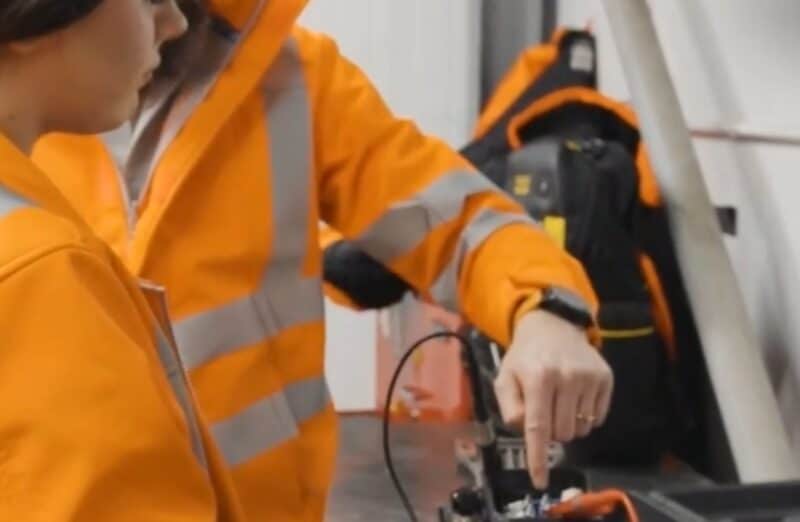
Engineering and technical roles
In engineering and technical roles within agricultural businesses, expertise and innovation are at the heart of ensuring efficient and reliable operations. These roles involve designing, maintaining, and improving machinery, systems, and processes essential to farming, food production, and agricultural support services. Whether it’s developing advanced machinery, maintaining robotics, optimising automation systems, or troubleshooting complex equipment, engineering and technical professionals are critical to the success of modern agriculture.
Key roles: Mechanical engineer, robotics technician, maintenance engineer, automation specialist, field service technician, precision equipment technician, design and development engineers
Skills & attributes: Technical expertise, problem-solving, attention to detail, strong communication, and adaptability to work with diverse technologies and environments.
These roles are ideal for individuals who thrive in hands-on settings, are passionate about innovation, and take pride in contributing to the efficiency and sustainability of the agricultural industry.
Scorecard
Salary Potential*
Flexible Hours
Flexible Location
Physicality
*based on a 40-hour working week

Software and data management
The software and data management teams are vital to supporting the efficiency and innovation of agricultural operations. These roles involve developing, managing, and maintaining software systems and data platforms that optimise farming practices, streamline processes, and provide actionable insights. Software and data professionals collaborate with other departments to ensure smooth integration, accurate reporting, and high-quality performance. In smaller operations, roles may combine multiple responsibilities, while larger organisations often feature specialised positions.
Key roles: Software developer, data analyst, IT systems administrator, agricultural technology specialist, cloud infrastructure engineer, UX/UI designer, machine learning engineer/developer, AI developer, Vision systems developer.
Skills & attributes: Strong technical and analytical skills; proficiency in software development, data analysis, and IT systems; effective communication and problem-solving; ability to adapt to rapidly evolving technologies.
These roles suit individuals who thrive on innovation and problem-solving, enjoy working with technology, and take pride in shaping the future of agriculture through advanced software and data-driven solutions.
Scorecard
Salary Potential*
Flexible Hours
Flexible Location
Physicality
*based on a 40-hour working week

Compliance and quality control
Compliance and quality control roles ensure agricultural products, systems, and operations meet regulations and customer expectations. They involve inspections, audits, certifications, and process improvements across the supply chain—from food safety to machinery and software testing. These roles demand strong regulatory knowledge and attention to detail. Larger firms often have dedicated teams, while smaller businesses combine these tasks into broader roles. Their work is key to maintaining standards and delivering trusted, high-quality agricultural solutions.
Key roles: Quality assurance specialist, compliance officer, food safety inspector, product tester, regulatory affairs specialist, packaging inspector.
Skills & attributes: Attention to detail, knowledge of industry regulations, analytical thinking, communication skills, problem-solving, and adaptability.
These roles suit individuals who enjoy structured environments, thrive on maintaining high standards, and take pride in ensuring the integrity and safety of agricultural products and operations.
Scorecard
Salary Potential*
Flexible Hours
Flexible Location
Physciality
*based on a 40-hour working week
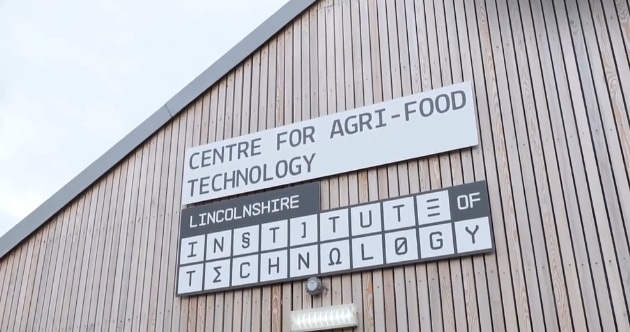
Training and education
Training and education roles equip agricultural professionals with the skills needed in a fast-evolving industry. They design and deliver training on best practices, safety, and new technologies—ensuring teams can operate machinery, apply precision farming, and adapt to robotics, software, and compliance. In smaller businesses, trainers often cover broad topics, while larger organisations use specialists. These roles are vital for workforce development, supporting innovation and operational success across the agricultural sector.
Key roles: Training specialist, technical trainer, precision farming educator, robotics instructor, compliance trainer, agricultural skills coach.
Skills & attributes: Excellent communication and presentation skills, technical expertise, adaptability, organisational skills, and a passion for teaching and development.
These roles suit individuals who thrive on collaboration, enjoy sharing knowledge, and take pride in empowering others to excel in their roles within the agricultural sector.
Scorecard
Salary Potential*
Flexible Hours
Flexible Location
Physicality
*based on a 40-hour working week

Operations and logistics roles
Operations and logistics roles are crucial for the smooth production, delivery, and implementation of agri-tech solutions. In robotics and automation, they manage component procurement, inventory, and system shipments. In engineering, they source materials, coordinate deliveries, and support maintenance. Operations teams handle assembly, testing, and quality control. In software firms, they oversee workflows, software rollouts, and team coordination. Across all sectors, these roles ensure supply chains, internal processes, and client demands are efficiently managed.
Key roles: Operations manager, supply chain manager, logistics coordinator, warehouse manager, installation coordinator, production scheduler, inventory manager.
Skills & attributes: Excellent organisational and time management skills, knowledge of supply chain and production processes, attention to detail, strong communication, technical proficiency (especially with logistics and inventory software), and adaptability to dynamic operational needs.
These roles are perfect for individuals who thrive on planning and coordination, enjoy solving logistical challenges, and take pride in keeping businesses running efficiently while meeting client needs.
Scorecard
Salary Potential*
Flexible Hours
Flexible Location
Physicality
*based on a 40-hour working week
In addition to hands-on roles, agri-tech and engineering businesses rely on essential support functions such as marketing, finance, procurement, IT, HR, and operations. For more information on these departments and the roles they offer, click here to explore further.
For information on local courses and education providers that could support your career working for agri-tech and engineering businesses, click here.

